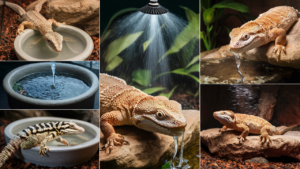Caring for small pets requires attention to their specific needs in grooming, habitat, nutrition, and health. This article provides crucial tips on rabbit grooming, hamster habitat setups, bird feeding schedules, and turtle shell care to help any pet owner ensure their furry, feathered, or shelled friends stay happy and healthy.
Rabbit Grooming Tips
Grooming is essential for rabbits, particularly long-haired breeds like the Angora. Regular brushing, at least once a week, helps prevent matting and reduces shedding. Inspect the coat for health issues, such as wool block, and shear fur as needed. Make grooming sessions comfortable by using gentle strokes and reward your rabbit with treats, fostering trust and relaxation during the process.
Hamster Habitat Setup
Setting up a proper habitat for your hamster is crucial for their well-being. A minimum cage size of 360 square inches is recommended, with solid flooring preferred over wire to prevent injuries.
Use materials such as aspen shavings or paper bedding, avoiding cedar and pine, which can cause respiratory issues. Provide hiding spots and tunnels for safety and enrichment, allowing your hamster to display natural burrowing behaviors.
Each breed has unique needs; for instance, Syrian hamsters require more space and larger tunnels than dwarf breeds. Regularly inspect the habitat for potential hazards like sharp edges or gaps that may lead to escapes.
Bird Feeding Schedules
Feeding schedules for pet birds are paramount for their health. Most birds thrive on two feeding sessions daily, with species-specific requirements regarding seeds, pellets, fresh fruits, and vegetables. Incorporating a variety of colors in fruits and vegetables ensures balanced nutrition.
Monitor your bird’s weight and droppings to gauge health; a healthy bird is active with bright eyes and a clean appearance. Adjust feeding frequency in winter months, using slightly warmer foods as birds may require extra calories during colder seasons for warmth and energy.
Turtle Shell Care
Caring for a turtle’s shell is essential for its overall health. The shell, composed of the carapace and plastron, protects vital organs and assists in thermoregulation. Regular cleaning with a soft brush and non-toxic solutions prevents bacteria buildup and keeps the shell smooth.
Watch for signs of shell rot such as discoloration, soft spots, and a foul odor, which may indicate underlying health issues. A balanced diet rich in calcium, such as leafy greens and calcium supplements, promotes a strong shell.
Ensure optimal habitat conditions, including appropriate water temperatures and basking areas, as these factors significantly affect shell health and development.
Conclusions
In summary, effective care for small pets revolves around understanding their unique needs in grooming, habitat, diet, and health. By following these guidelines, pet owners can enhance their pets’ quality of life and prevent common health issues. A happy pet enriches the lives of their owners and strengthens the bond between them.



